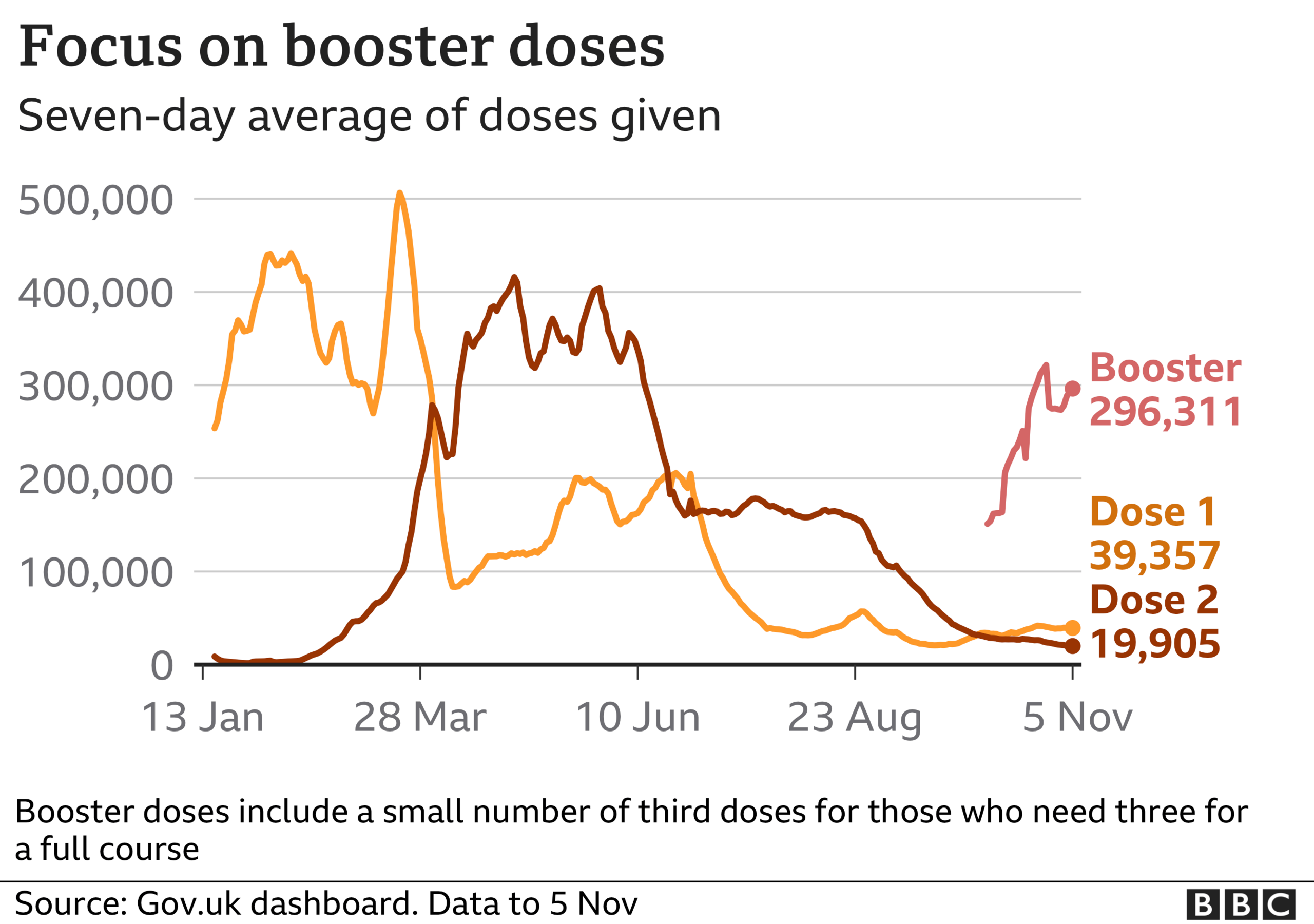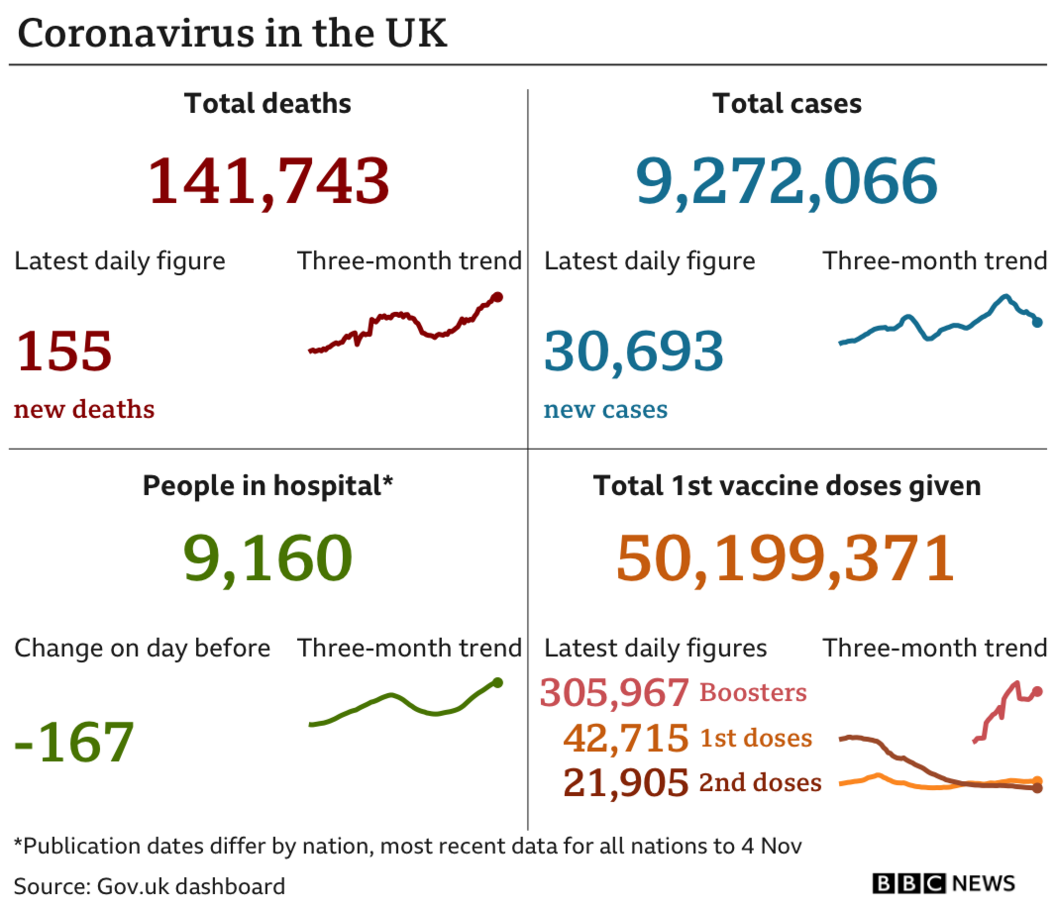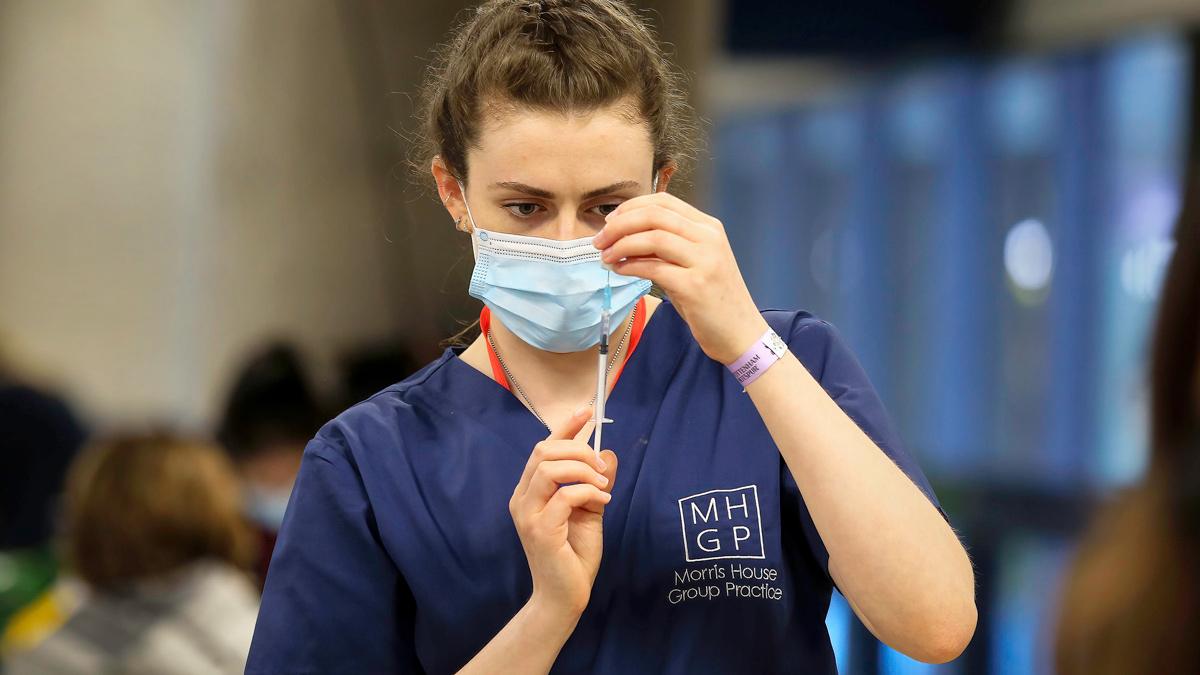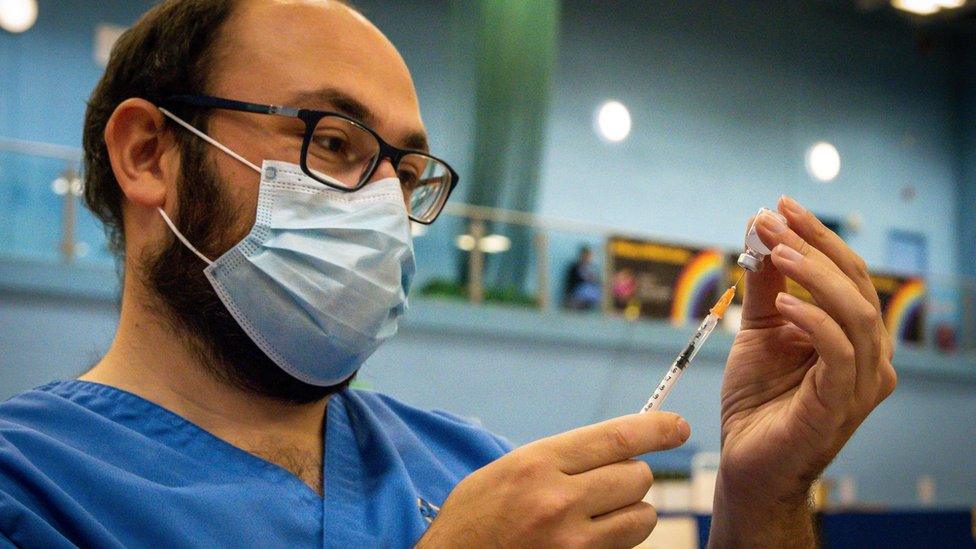Covid: Booster jabs to open earlier for booking in England
- Published

People living in England will be able to book their coronavirus booster jabs a month in advance under government plans to speed up their rollout.
Currently, people cannot book their top-up vaccines until six months have elapsed since their second dose.
But from Monday, those aged 50 and over, plus those most at risk, will be able to book after five months.
It means they could receive their booster on the day they reach the six-month milestone.
NHS England is introducing the change to accelerate the rate of take-up of booster jabs, to help prolong protection against the virus.
Experts say while two vaccine doses give people high levels of protection, immunity reduces over time, particularly for at-risk groups.
The added concern is that even small dips in vulnerable people's immunity will affect the NHS's ability to cope this winter.
Health Secretary Sajid Javid said vaccines were the best way to protect people ahead of a "challenging winter".
He said: "This will accelerate the booster programme, ensure the NHS is able to vaccinate people as quickly as possible, and importantly, help more people maintain protection against Covid-19, as we know immunity will dip over time."
The government's Scientific Advisory Group for Emergencies (Sage) estimates the protection against needing hospital treatment for a Covid infection falls:
from 95% three months after getting the second doses of Oxford/AstraZeneca to 75% after six months
from 99% three months after getting the second doses of Pfizer/BioNTech to 90% after six months.

Who can get the booster?
People are eligible for a booster jab in the UK if:
They are aged 50 or over
They are over-16 with a health condition that places them at high risk
They are a front-line heath or social care worker
It must also have been six months (182 days) since their second dose.
Rules about who is eligible for a booster are the same throughout the UK.
In Scotland, external, people will be able to book boosters online from later this month. In Wales, external and Northern Ireland, external people will be invited to book an appointment and for most people this will happen at least six months after their second jabs.

The UK got off to a fast start with its vaccine programme - jabbing the most vulnerable with first doses ahead of almost every other country in the world - but some have criticised the booster rollout for being too slow.
So far, some nine million people in the whole of the UK have been given a third top-up jab to prolong immunity.
The average number of boosters given daily was about 293,000 in the week leading up to Monday, according to the latest vaccine statistics. , external


Earlier this week, the Labour Party called on the government to set a target of administering 500,000 Covid booster jabs a day.
Shadow health minister Rosena Allin-Khan told the House of Commons: "On current trends we won't complete the booster programme until spring 2022. The government needs to get a grip and set a target of 500,000 boosters a day."
Boosters are considered to be a key part of preventing the reintroduction of some restrictions as part of the government's Plan B for winter if the situation should worsen.
On Wednesday, England's deputy chief medical officer Jonathan Van-Tam cautioned it could be a difficult winter ahead and urged people to get their boosters.
And last week the Welsh government warned of a possible return to a return of some Covid restrictions to allow a "normal" Christmas.
Prof Van-Tam: "There are some hard months to come in the winter"
Last month, the guidance was changed so that those at highest risk - including people in care homes - can already receive their boosters slightly earlier - five months after a second vaccine.
In England, people can also book jabs by calling 119 or by going to walk-in sites across the country, without an appointment, six months after their second dose.

WHO WAS GUY FAWKES?: How much do you know about the famous gunpowder plotter?
DISABILITY IN THE ANCIENT WORLD: From excelling on the battlefield to very well-dressed guide dogs

Related topics
- Published29 October 2021

- Published18 October 2021
